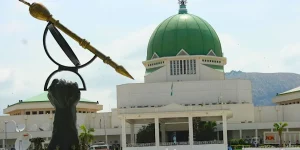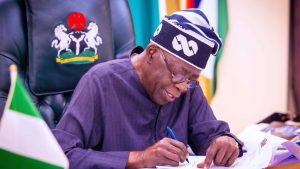
The assertion made by Senator Abdul Ningi regarding the presence of over N53 billion worth of projects within the 2024 Appropriations Act lacking specific geographical allocations has been substantiated through a recent inquiry.
The senator, representing the Bauchi Central Senatorial District, recently levelled accusations against the Senate leadership, alleging illicit inclusion of projects into the 2024 budget. Consequently, he faced suspension from the Senate following his outspoken stance on the matter.
Senator Ningi, in defence of his claims, engaged expert scrutiny of the budget, leading to the discovery of several projects devoid of designated locations.
Upon careful examination of documents obtained by this publication and an exhaustive analysis of both the proposed and ratified 2024 budgets, it becomes evident that Senator Ningi’s assertions hold considerable validity.
According to the findings presented by Senator Ningi, a team of consultants identified 36 projects valued at N53 billion lacking specified geographical placements for implementation within the allocated funds.
The unfolding of events surrounding the 2024 Budget began on the 29th of November, 2024, when President Bola Tinubu presented the N27.5 trillion budget to the National Assembly.
Comprising a recurrent expenditure profile of N9.92 trillion, a capital expenditure component of N8.7 trillion, and N8.25 trillion allocated for debt servicing, the budget garnered immediate attention and scrutiny.
Within a remarkably swift timeline, lawmakers swiftly passed the budget, augmenting it by N1.2 trillion, thus elevating the total figure to N28.7 trillion. This rapid legislative action prompted widespread speculation among observers, who pondered whether diligence was sacrificed at the altar of speed.
The pace did not relent as President Tinubu expedited the bill’s enactment into law, affixing his signature within a mere 48 hours following its transmission to him.
However, the honeymoon period for the budget’s implementation was short-lived, as controversy erupted within a span of barely 60 days.

In a twist of events, Senator Abdul Ningi’s statements regarding the budget discrepancies have sparked a contentious debate, shedding light on alleged irregularities within Nigeria’s fiscal framework.
Initially quoted during an interview with BBC Hausa, Senator Ningi purportedly revealed staggering figures, asserting that a colossal N3 trillion was clandestinely inserted into the budget for projects lacking designated locations. Notably, he attributed this occurrence to Senator Akpabio’s tenure.
However, Senator Ningi swiftly retracted his statements, asserting that he was misquoted and adamantly refuting any mention of “budget padding” or implicating Senator Akpabio. Despite mounting pressure to recant his claims, he staunchly maintained his stance, leading to his suspension during a heated plenary session.
Central to the controversy are two significant issues: budget padding and constituency projects.
Delving into the specifics, scrutiny of the budget documents by Senator Ningi unveiled a series of dubious allocations. For instance, allocations such as N500 million for the “Energy Poverty Intervention in Selected Rural Cooperators Settlements” lacked clarity, with vague descriptions and undisclosed locations. Additionally, various projects injected into the budget of institutions like the Federal College of Land Resources in Owerri, Imo State, lacked presidential approval, indicating potential irregularities in their inclusion.
Similar discrepancies extended to other agencies, such as the Agricultural Council of Nigeria and the Nigeria Institute of Oceanography and Marine Research, raising concerns about the integrity of the budgeting process.
Of particular note is the duplicity observed in allocating untraceable projects to multiple agencies, indicative of possible fraudulent activities orchestrated by lawmakers.
Moreover, the replication of projects without specified locations across different institutions, exemplified by the National Horticulture Research Institute in Ibadan and the Nigerian Institute of Oceanography and Marine Research, underscores systemic flaws in budget formulation and oversight.
These revelations underscore the urgent need for transparency and accountability within Nigeria’s budgetary processes as the nation grapples with allegations of fiscal impropriety and potential fraud perpetrated by lawmakers.

